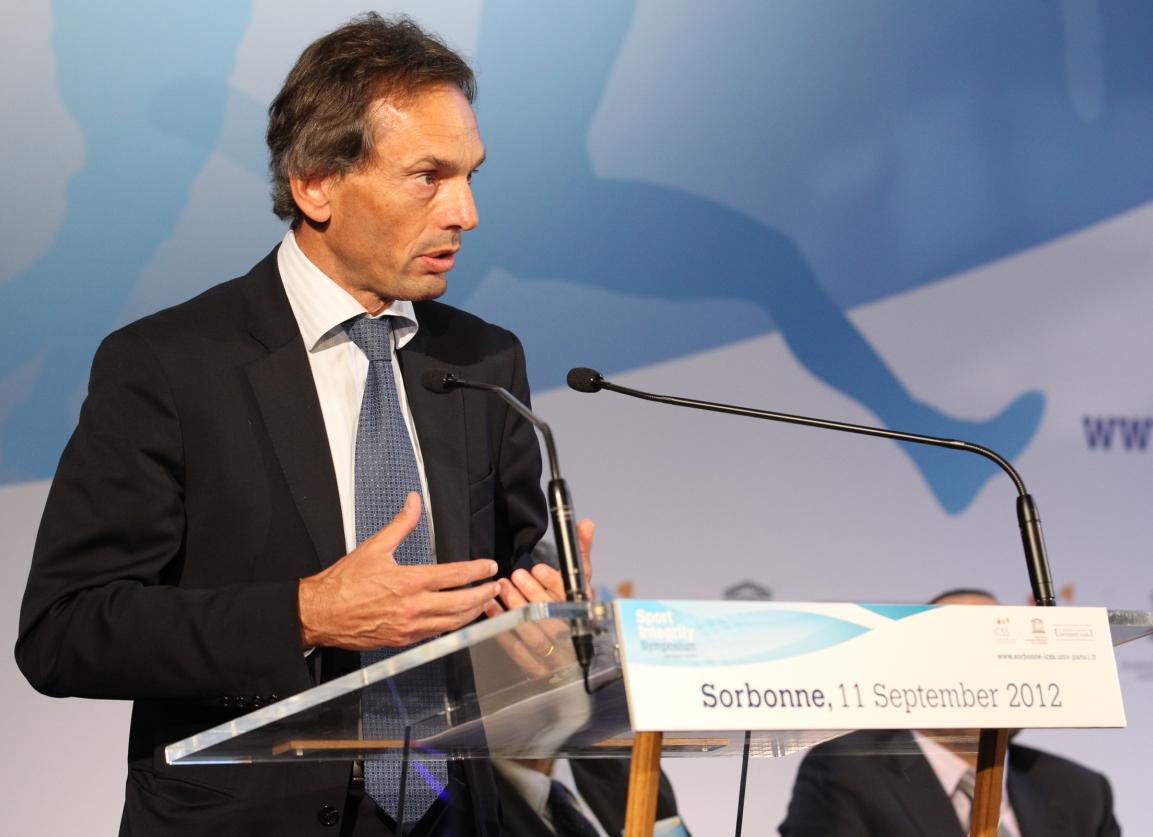Paris – France, Sept 14, 2012: The International Centre for Sport Security (ICSS) has announced the development of two new initiatives to support major sporting organisations in the delivery of international major events and integrity practices at the 2012 Sorbonne-ICSS Sport Integrity Symposium.
As part of their commitment to help governments and international federations deliver safe and secure major sport events, the ICSS has announced the first National Sport Integrity Index (NSII), a new collaborative scientific effort involving academics, sport experts and international agencies which will lead to an assessment of the sport security environment and sport security assets of countries looking to host major sports events.
The sport integrity index will become a significant international tool in the fight against corruption in sport and will highlight certain regions and jurisdictions where national and international stakeholders can provide additional support to existing integrity practices.
In addition to the index, the ICSS has also announced that the findings from the 2012 Sorbonne-ICSS Sport Integrity Symposium will be used to create the first ICSS Handbook for Sport Integrity – a structured toolkit that will provide stakeholders, federations and sports bodies with direct support and advice on understanding and dealing with the complexities of international sport related integrity issues.
Mohammed Hanzab (President, ICSS) said; “I would like to thank all those delegates who attended this year’s Sorbonne-ICSS Sport Integrity Symposium and the Paris 1 University Panthéon-Sorbonne for hosting a magnificent event.
“I hope that the National Sport Integrity Index will provide major sports bodies with an important comparison between different regions and jurisdictions and existing integrity practices. In addition, the first ICSS Handbook for Sport Integrity will be an important element of the ICSS and Paris 1 University Panthéon-Sorbonne partnership and I hope that it will help major sports bodies understand and manage complex integrity issues.”
Philippe Boutry (President, Paris 1 University Panthéon-Sorbonne) said; “As part of our partnership with the ICSS, this year’s symposium will contribute towards our overall goal of achieving an international harmonisation of standards and regulations associated with match-fixing, illegal betting and all aspects of sport integrity.
“I look forward to continuing our work with the ICSS and many of the leading experts and practitioners that attended the symposium and developing tangible solutions to some of the most pressing integrity issues facing governments and sports administrators in the world today.”
The 2012 Sorbonne-ICSS Sport Integrity Symposium’s structured seminar programme brought together leading integrity experts to explore current trends, challenges and solutions in the field of sport integrity. The seminars were conducted under Chatham House rules to encourage open and vigorous debate and covered a number of integrity topics including:
• Sport Psychology, Ethics & Consequences – Prevention Methods (Training & Education);
• Structural Sporting Vulnerabilities, Resistance & Solutions;
• Identification, Investigation and Dismantling of Organised Crime in Sport;
• Sport Financial Vulnerabilities and Betting Industry Collaboration; and
• International Legal Instruments and Conventions for Corruption Prevention in Sport.
Key findings that emerged from the working sessions include:
• The critical need to implement education programmes for young athletes, which should be used as the main preventative tool against match-fixing. During the working group, young athletes were identified as one of the main groups that are vulnerable to match-fixers and it was highlighted that more could be done by governing bodies in sport to highlight the dangers of match-fixing amongst young people.
• The potential role of an independent body to help gather and disseminate intelligence information between law enforcement bodies and national and international sports federations. It was recognised that there was a requirement for greater collaboration between these types of organisations in order to effectively tackle the corruption and criminal activity currently taking place in sport.
• The need for greater cooperation and knowledge-sharing between the betting industry and major sports federations. When examining the role of the betting industry and the need for knowledge from this field, leading practitioners agreed that expertise from the betting industry should be integrated into the integrity units that currently exist within major sporting federations.
The 2012 Sorbonne-ICSS Sport Integrity Symposium, jointly staged by the International Centre for Sport Security (ICSS) and Paris 1 University Panthéon-Sorbonne with the official support of the United Nations Educational, Scientific and Cultural Organisation (UNESCO), is the first international, multi-stakeholder event to support the global sporting community in its battle against corruption and is part of the partnership between the ICSS and Paris 1 University Panthéon-Sorbonne and the activities of the Scientific and Advisory Committee, which is chaired by Laurent Vidal.
Leading experts and entities in the world of sport that attended this year’s symposium include National and International Sport Federations, Governments, International and Regional Organisations including United Nations Agencies, INTERPOL, the European Union and the Council of Europe, as well as Non-Governmental Organisations, Academic Institutions, Betting Institutions, Legal and Anti-Corruption Experts and Law Enforcement. —-Will Shand/Verocom


Leave a Reply
You must be logged in to post a comment.